People love Top 10 lists and a Top 10 list of new species is no exception. We love the idea so much we took the 2007 choices from the International Institute for Species Exploration at Arizona State University and an international committee of taxonomists and made them ... funnier.
We know you have other things to read, like a Top 10 list of String Theory jokes, somewhere so we'll get right to it.
10. Tecticornia bibenda. One of two on this list that seems to have made it for no other reason than that press releases gave it a catchy nickname, in this case the "Michelin Man™" plant, and that really appeals to fame-seeking biologists who want to have mass appeal. If this actually looks like the Michelin Man™ to you, you're just being argumentative.
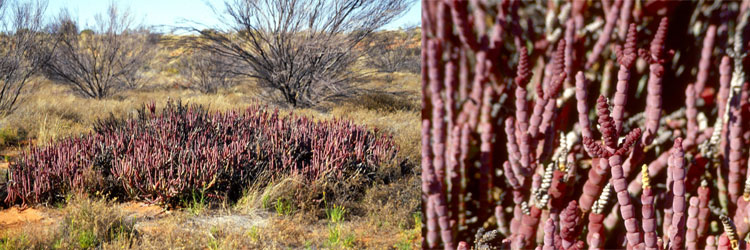
Reference: Shepherd, K.A., & S.J. Van Leeuwen. 2007. Tecticornia bibenda (Chenopodiaceae: Salicornioideae) a new C4 samphire from the Little Sandy Desert, Western Australia. Nuytsia 16: 383-391.
9. Megaceras briansaltini. At ASU they note that this horned beetle looks like the one in a Disney movie - "A Bug's Life." We are mostly surprised anyone watched that film. There's "Little Mermaid" and "Toy Story" and "Cars" and then a whole lot of crap in between them.
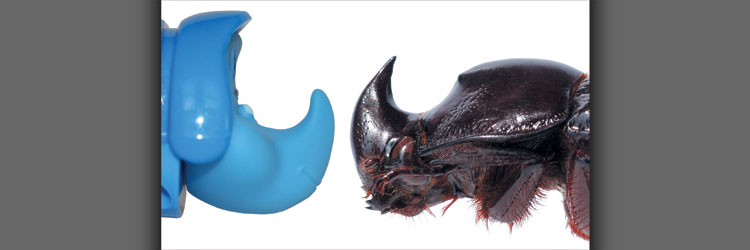
Reference: Ratcliffe, B.C. 2007. A remarkable new species of Megaceras from Peru (Scarabaeidae: Dynastinae: Oryctini). The “Dim Effect”: Nature mimicking art. The Coleopterists Bulletin 61(3): 463-467.
8. Malo kingi. It's small consolation but American tourist Robert King had this named after him because he died after being stung by it while swimming in Australia. USA! USA!
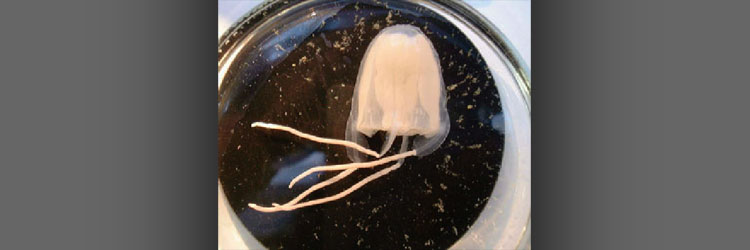
Reference: Gershwin, L.A. 2007. Malo kingi: A new species of Irukandji jellyfish (Cnidaria: Cubozoa: Carybdeida), possibly lethal to humans, from Queensland, Australia. Zootaxa 1659: 55-68.
7. Xerocomus silwoodensis. Think there's nothing fun to do in London? You and the rest of the planet agree. But this swank new mushroom was discovered on a campus of Imperial College. Discovering a new mushroom in 2007 on the campus of a major university in an ancient city like London tells you biologists still know jack about species.
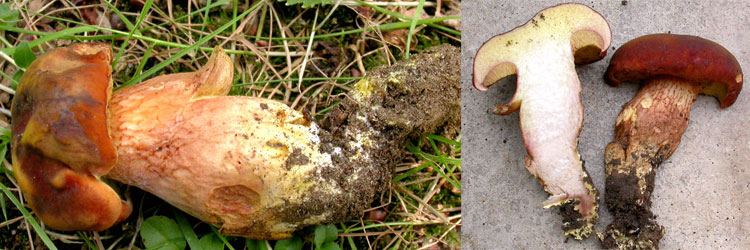
Reference: Taylor, A.F.S., A.E. Hills, G. Simonini, J.A. Muñoz and U. Eberhardt. 2007. Xerocomus silwoodensis sp. nov., a new species within the European X. subtomentosus complex. Mycological Research 111: 403-408.
6. Styloctenium mindorensis. Seriously, is that not the cutest fruit bat you have ever seen? It's only the second species of the genus, the other one being discovered by Alfred Russell Wallace, who co-authored a famous paper with a guy named - oh, yeah - Charles Darwin.

Reference: Esselstyn, J.A. 2007. A new species of stripe-faced fruit bat (Chiroptera: Pteropodidae: Styloctenium) from the Philippines. Journal of Mammalogy 88: 951-958.
5. Oxyuranus temporalis. Doesn't rank higher because one of its cousins is the most venomous snake on the planet and this must settle for number two on that list. Only one has ever been found so it may have bitten itself before it could reproduce.

Reference: Doughty, P., B. Maryan, S.C. Donnellan & M.N. Hutchinson. 2007. A new species of taipan (Elapidae: Oxyuranus) from central Australia. Zootaxa 1422: 45-58.
4. Philautus maia. Identified from a single female museum specimen collected around 1860. It and a number of related frog species from Sri Lanka are almost certainly now extinct. Why do Sri Lankans hate frogs so much? We will never know.
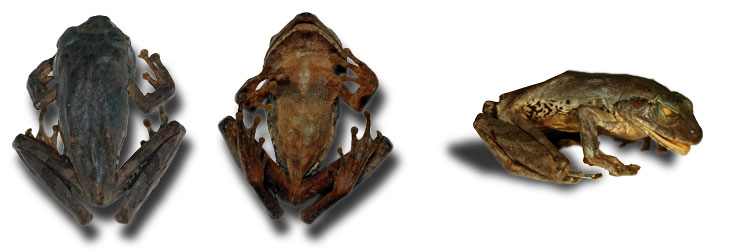
Reference: Meegaskumbura, M., K. Manamendra-Arachchi, C.J. Schneider & R. Pethiyagoda. 2007. New species amongst Sri Lanka’s extinct shrub frogs Amphibia: Rhacophoridae: Philautus). Zootaxa 1397: 1-15.
3. Desmoxytes purpurosea. This millipede knows its shocking pink is so distasteful to predators it doesn't even bother to hide. That's bold, baby.
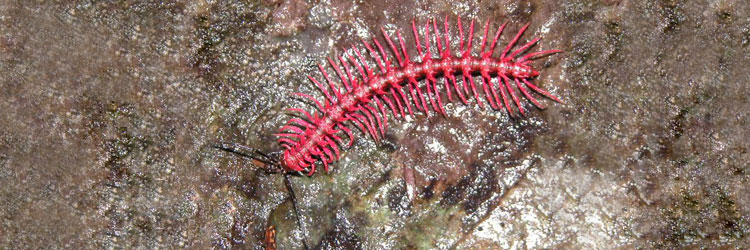
Reference: H. Enghoff, C. Sutcharit & S. Panha. 2007. The shocking pink dragon millipede, Desmoxytes purpurosea, a colourful new species from Thailand (Diplopoda: Polydesmida: Paradoxosomatidae). Zootaxa 1563: 31-36.
2. Gryposaurus monumentensis. An accredited paleontology museum on a high school campus? Indeed, and Alf Museum made this nifty gigantic discovery before lots of fancy-pants universities with fat NCAA contracts.
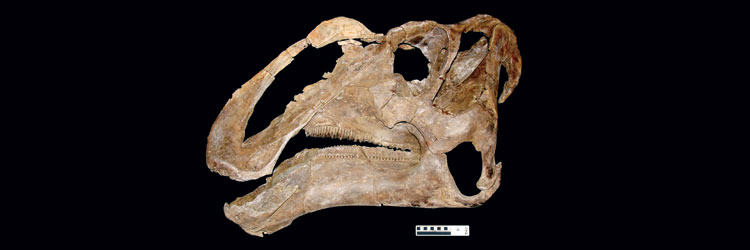
Reference: Gates, T.A. & S.D. Sampson. 2007. A new species of Gryposaurus (Dinosauria: Hadrosauridae) from the late Campanian Kaiparowits Formation, southern Utah, USA. Zoological Journal of the Linnean Society 151: 351-376.
1. Electrolux addisoni. Yes, "the name sucks" has already been taken by approximately 10,000 other sites so we'll just say we love the newest ornate sleeper ray member of the electric ray family Narkidae. This mostly got on the list because of the name. Zoologists are soooo edgey.
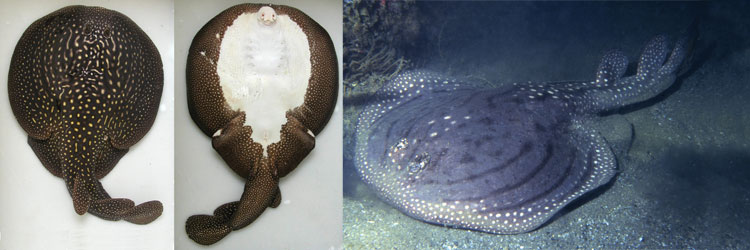
Reference: Compagno, L.J.V. & P.C. Heemstra. 2007. Electrolux addisoni, a new genus and species of electric ray from the east coast of South Africa (Rajiformes: Torpedinoidei: Narkidae), with a review of torpedinoid taxonomy. Smithiana Bulletin 7: 15-49.
List determined by the Arizona State University International Institute For Species Exploration.






Comments